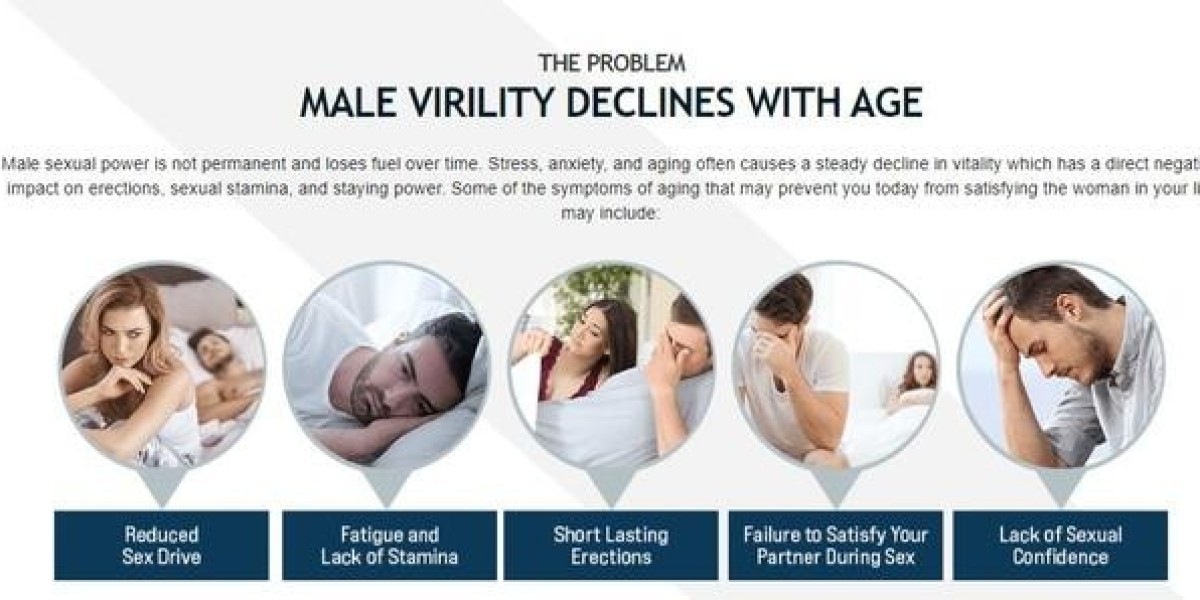Order Now - CLICK HERE
Office Website: https://www.wellnesscarepro.com/order/staminup-gummies
StaminUp Male Enhancement Gummies: - StaminUp Male Enhancement Gummies Remaining consistent with wellbeing and health, StaminUp Male Enhancement Gummies are created with normal fixings. They contain no counterfeit tones or flavors, guaranteeing that you're filling your body with quality substances. The utilization of regular fixings upholds Twin Components CBD Gummies your quick energy and strength needs as well as your general wellbeing in the long haul. This approach ensures that you outdo the two universes — upgraded execution and a cleaner, better dietary enhancement.
Today Special Deal: - https://www.wellnesscarepro.com/agent-alpha-male-enhancement-buy
➲➲ Official Website for United States - https://www.wellnesscarepro.com/order/staminup-gummies
➲➲ Official Website for Australia
https://www.wellnesscarepro.com/order/staminup-gummies-australia
➲➲ Official Website for Canada
https://www.wellnesscarepro.com/order/staminup-gummies-canada
Related Others Website’s:-
https://www.facebook.com/StaminUpGummy
https://www.facebook.com/StaminUpMaleEnhancementGummiesUSA
https://www.facebook.com/groups/staminupgummiesstore
https://www.facebook.com/groups/staminupmaleenhancementgummy
https://www.facebook.com/events/1295689295440636/
https://wellnesscarepro.blogspot.com/2025/07/staminup-gummies.html
https://amazongummies.blogspot.com/2025/07/StaminUp-ME-Gummies.html
https://chemistwarehousehealth.blogspot.com/2025/07/staminup-male-enhancement-gummies.html
https://www.wellnesscarepro.com/staminup-gummies
https://www.wellnesscarepro.com/order/staminup-gummies
https://colab.research.google.com/drive/1eMWhenx5wNUp1MbdHp5PAb6WjMmSIP4H?usp=sharing
https://staminupgummiesstore.webflow.io/
https://staminup-gummies-official-site.webflow.io/
https://staminupgummiesuse.webflow.io/
https://staminup-gummies-use.webflow.io/
https://staminupgummiestry.webflow.io/
https://staminup-gummies-try.webflow.io/
https://staminup-male-enhancement-gummies-use.webflow.io/
https://staminupmaleenhancementgummiesuse.webflow.io/
https://staminupgummies-1.jimdosite.com/
https://staminup-me-gummies.jimdosite.com/
https://staminupgummiesofficialsite.jimdosite.com/
https://staminup-male-enhancement-gummies-1.jimdosite.com/
https://staminupgummiesuse.jimdosite.com/
https://staminup-gummies-use.jimdosite.com/
https://staminup-gummies-try.jimdosite.com/
https://staminupgummiestry.jimdosite.com/
https://staminup-male-enhancement-gummies-use.jimdosite.com/
https://staminupmaleenhancementgummiesuse.jimdosite.com/
https://site-ui0hjkrf8.godaddysites.com/
https://site-zb8985es4.godaddysites.com/
https://site-kb39kamd8.godaddysites.com/
https://site-wj6to7y31.godaddysites.com/
https://site-nkpvrxc85.godaddysites.com/
https://site-6ecwmhhmf.godaddysites.com/
https://site-swaoltal1.godaddysites.com/
https://site-mv4i9s0dr.godaddysites.com/
https://site-bszoscurs.godaddysites.com/
https://site-0x00750wg.godaddysites.com/
https://sites.google.com/view/staminup-gummy/home
https://sites.google.com/view/staminup-gummies-official-site/home
https://sites.google.com/view/staminupmegummies/home
https://sites.google.com/view/staminupmaleenhancementgummys/home
https://sites.google.com/view/staminup-gummies-use/home
https://sites.google.com/view/staminupgummiesuse/home
https://sites.google.com/view/staminupgummiestry/home
https://sites.google.com/view/staminup-gummies-try/home
https://sites.google.com/view/staminup-male-enhancement-use/home
https://sites.google.com/view/staminupmaleenhancementgummy-/home
https://groups.google.com/g/staminupgummiesstore
https://groups.google.com/g/staminupgummiesstore/c/jlSjwyw9NRc
https://groups.google.com/g/staminupgummiesstore/c/EzLKrsZD_2s
https://groups.google.com/g/staminupgummiesuse
https://groups.google.com/g/staminupgummiesuse/c/eniwnyVHCBI
https://groups.google.com/g/staminupgummiesuse/c/SYj1gbJi3fI
https://groups.google.com/g/staminupgummiestry
https://groups.google.com/g/staminupgummiestry/c/4qpxdkbDO_o
https://groups.google.com/g/staminupgummiestry/c/-k6bJxQilEM
https://groups.google.com/g/staminupmaleenhancementgummiesuse
https://groups.google.com/g/staminupmaleenhancementgummiesuse/c/qyLZSjFfLMk
https://groups.google.com/g/staminupmaleenhancementgummiesuse/c/txBa19uAo7E
https://www.dibiz.com/staminupgummies
https://www.dibiz.com/staminupmaleenhancementgummies
https://www.pinterest.com/pin/1046594400927704935
https://www.pinterest.com/pin/1046594400927704967
https://www.pinterest.com/pin/1046594400927705043
https://www.deviantart.com/staminupgummy/art/1217313522
https://staminupgummy.quora.com/
https://staminup-gummies.hashnode.dev/revitalize-your-performance-with-staminup-gummies
https://staminup-gummies.hashnode.dev/httpswwwfacebookcomstaminupgummy
https://nas.io/staminupgummy/digital-files/akyo
https://nas.io/staminupgummy/challenges/staminup-gummies-the-natural-way-to-increase-power-pleasure
https://nas.io/staminupgummy/challenges/natural-male-enhancement-made-easy-with-staminup-gummies
https://sfero.me/article/staminup-gummies-for-men-energy-libido
https://sfero.me/article/-natural-staminup-gummies-boost-testosterone
https://forum.motoshkola.od.ua/threads/https-www-facebook-com-staminupgummy.27906/
https://connect.usama.dev/blogs/24555/Staminup-Gummies-A-Natural-Formula-Designed-to-Fuel-Your-Day
http://staminupgummies14.alboompro.com/post/staminup-gummies-reviews-official-site
https://gns3.com/community/discussions/upgrade-your-routine-with-staminup-gummies
https://www.dibiz.com/mittudyre
https://penzu.com/p/f9f1c2e491fca6d4
https://www.inkitt.com/staminupgummiesuse
https://www.pinterest.com/pin/1000291767246634258
https://wakelet.com/wake/lRMSx2zUBkct8DRII5DgD
https://twibbo.nz/staminupgummiesuse
https://www.deviantart.com/staminupgummiesuse/art/1217001349
https://www.homify.com/diy/81751/https-www-facebook-com-staminupgummy
https://haitiliberte.com/advert/https-www-facebook-com-staminupgummy/
https://medium.com/@mittudyre/https-www-facebook-com-staminupgummy-8fa2036b3854
https://devfolio.co/projects/staminup-gummies-4bc8
https://staminupgummiesuse.hashnode.dev/httpswwwfacebookcomstaminupgummy
https://caramellaapp.com/staminupgummiesuse/HVQ36OrYA/https-www-facebook-com-staminupgummy
https://www.irvac.org/group/mysite-200-group/discussion/3ad55978-29f9-4f0e-8141-8f24e781036a
http://www.hot-web-ads.com/view/item-16105840-https-www.facebook.com-StaminUpGummy.html
http://www.usnetads.com/view/item-133630171-https-www.facebook.com-StaminUpGummy.html
http://www.canetads.com/view/item-4149365-https-www.facebook.com-StaminUpGummy.html
http://www.usaonlineclassifieds.com/view/item-3013908-https-www.facebook.com-StaminUpGummy.html
http://www.innetads.com/view/item-3231879-https-www.facebook.com-StaminUpGummy.html
http://www.ukadslist.com/view/item-9759305-https-www.facebook.com-StaminUpGummy.html
http://www.aunetads.com/view/item-2684373-https-www.facebook.com-StaminUpGummy.html
https://nas.io/want-more-energy-without-the-crash-try-staminup/digital-files/ljyy
http://harmonywavecbd21.alboompro.com/portfolio/health/1530696-https-www-facebook-com-staminupgummy
https://fmcreators.com/index.php?threads/https-www-facebook-com-staminupgummy.23291/
https://www.commudle.com/labs/this-gummy-changed-the-way-i-power-through-my-day
https://www.dibiz.com/aayushdyre
https://www.inkitt.com/staminupgummiestry
https://penzu.com/p/c9b7b5d62707ed87
https://www.pinterest.com/pin/1084241679049367819
https://wakelet.com/wake/6x3wmkiO534kkdqp9c5_2
https://twibbo.nz/staminupgummiestry
https://www.deviantart.com/staminupgummiestry/art/1217363356
https://www.homify.com/diy/81754/https-www-facebook-com-staminupgummy
https://haitiliberte.com/advert/https-www-facebook-com-staminupgummy-2/
https://medium.com/@aayushdyre/https-www-facebook-com-staminupgummy-a0407b136458
https://devfolio.co/projects/staminup-gummies-0c9c
https://staminupgummiestry.hashnode.dev/httpswwwfacebookcomstaminupgummy
https://www.irvac.org/group/mysite-200-group/discussion/e099e8f9-43d1-4dbc-b97f-199250436f8f
http://www.hot-web-ads.com/view/item-16107264-https-www.facebook.com-StaminUpGummy.html
http://www.usnetads.com/view/item-133631984-https-www.facebook.com-StaminUpGummy.html
http://www.canetads.com/view/item-4150298-https-www.facebook.com-StaminUpGummy.html
http://www.usaonlineclassifieds.com/view/item-3014956-https-www.facebook.com-StaminUpGummy.html
http://www.innetads.com/view/item-3233130-https-www.facebook.com-StaminUpGummy.html
http://www.ukadslist.com/view/item-9760082-https-www.facebook.com-StaminUpGummy.html
http://www.aunetads.com/view/item-2685276-https-www.facebook.com-StaminUpGummy.html
http://staminupgummies13.alboompro.com/portfolio/health/1531081-https-www-facebook-com-staminupgummy
https://www.commudle.com/labs/reclaim-your-prime-with-staminup-you-never-slow-down
https://knowt.com/note/169688ae-8a22-4d5a-a37f-3eff9fcc12f0/https--wwwfacebookcom-StaminUpGummy-
https://gns3.com/community/discussions/from-sluggish-to-supercharged-my-staminup-gummies-journey
https://connect.usama.dev/blogs/24579/https-www-facebook-com-StaminUpGummy
https://forum.motoshkola.od.ua/threads/https-www-facebook-com-staminupgummy.27936/
https://sfero.me/article/https-www-facebook-com-staminupgummy
https://www.dibiz.com/sieverdyre
https://penzu.com/p/8a51054aa0ce5923
https://www.inkitt.com/staminupmaleenhance
https://www.pinterest.com/pin/1097189527978019213
https://wakelet.com/wake/pAw7iY31W35avd5BzomFj
https://twibbo.nz/staminupmaleenhance
https://www.deviantart.com/staminupmaleenhance/art/1218115136
https://www.homify.com/diy/81760/https-www-facebook-com-staminupgummy
https://haitiliberte.com/advert/https-www-facebook-com-staminupgummy-3/
https://medium.com/@sieverdyre/https-www-facebook-com-staminupmaleenhancementgummiesusa-541ed04bd5a4
https://devfolio.co/projects/staminup-male-enhancement-gummies-2d60
https://staminupmaleenhance.hashnode.dev/httpswwwfacebookcomstaminupmaleenhancementgummiesusa
https://www.irvac.org/group/mysite-200-group/discussion/5e7790ee-d1df-4103-ac5f-a44c52d40e39
https://knowt.com/note/f6c72ce7-4451-47ec-ba92-84e5fb912db6/https--wwwfacebookcom-StaminUpGummy
https://gns3.com/community/discussions/stop-struggling-with-low-stamina-staminup-has-the-solution
https://connect.usama.dev/blogs/24760/https-www-facebook-com-StaminUpGummy
https://sfero.me/article/https-www-facebook-com-staminupgummy-1752480317434
http://ofbiz.116.s1.nabble.com/https-www-facebook-com-StaminUpGummy-td4886158.html
https://www.commudle.com/labs/the-top-selling-gummy-supplement-for-men-staminup-is-here






